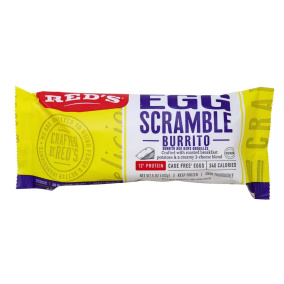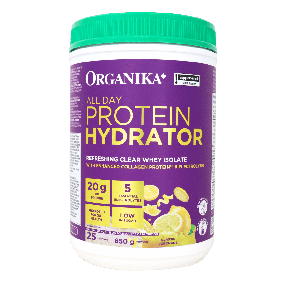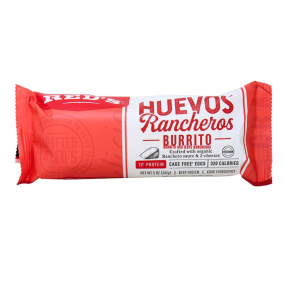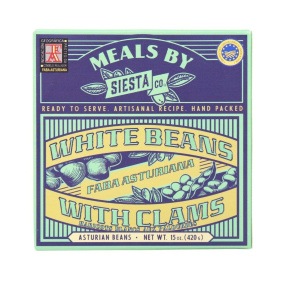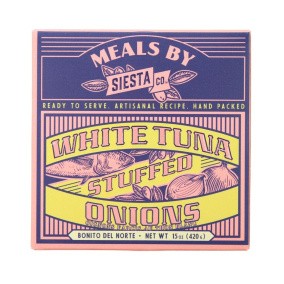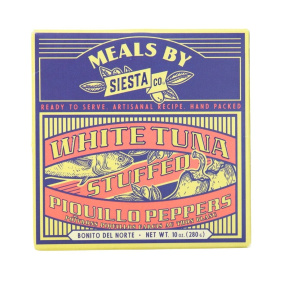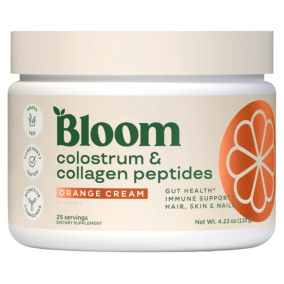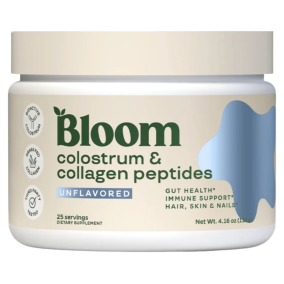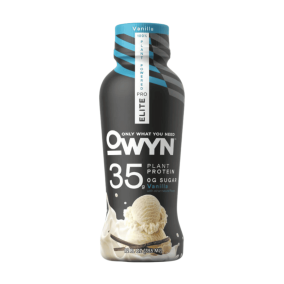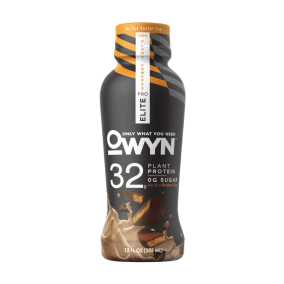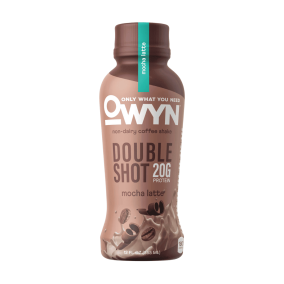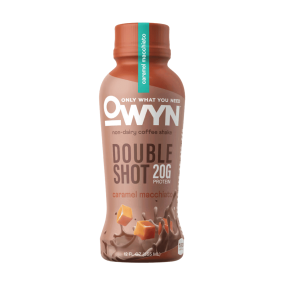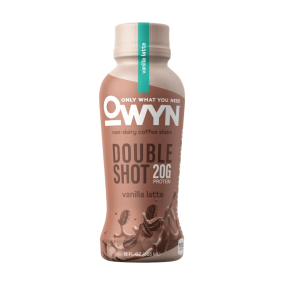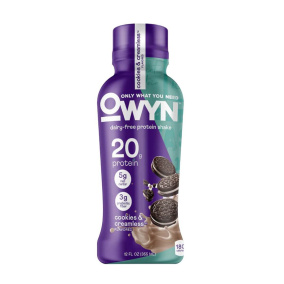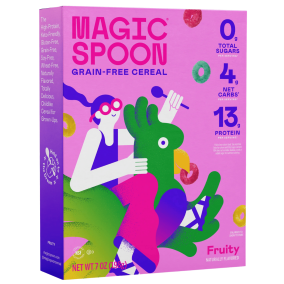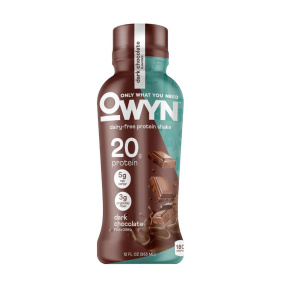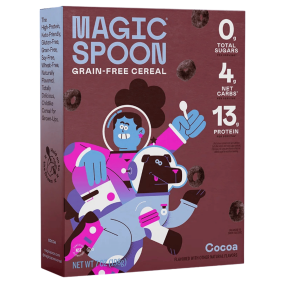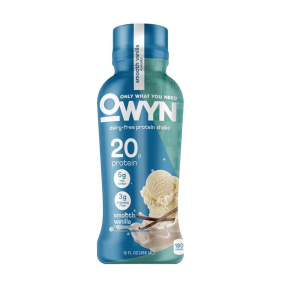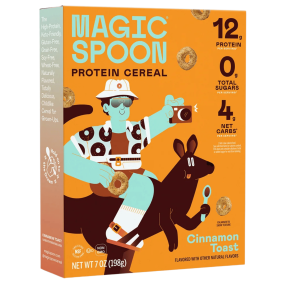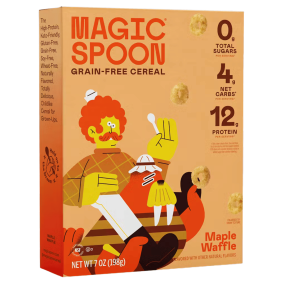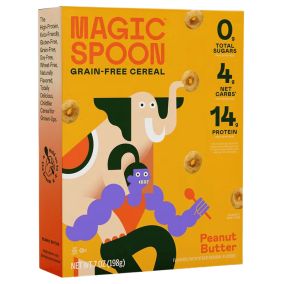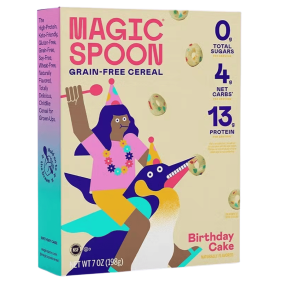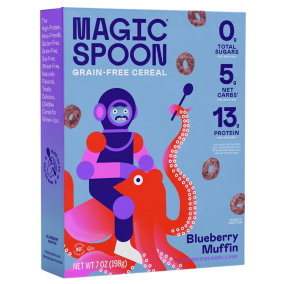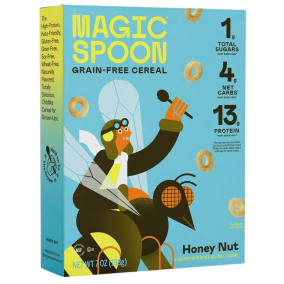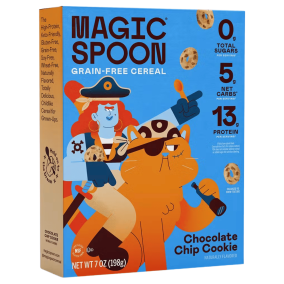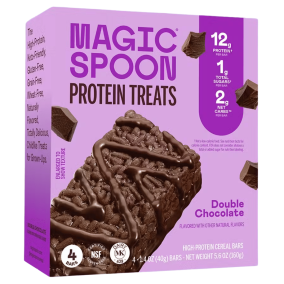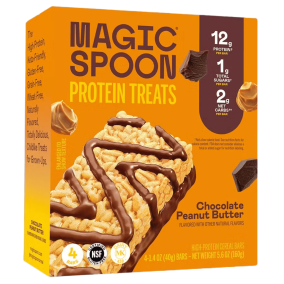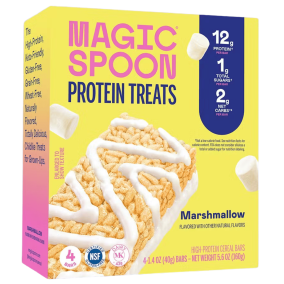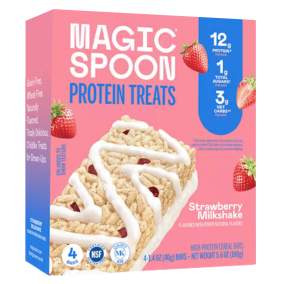High-Protein
Power up your day with our high-protein selection! Protein is a vital macronutrient, essential for muscle development, energy, and overall health. Whether you're a fitness enthusiast, a busy professional, or simply aiming for healthier choices, our wide array of nutritious high-protein foods and snacks will help you fuel your body and achieve your goals.
- CA$4.99

- CA$53.99

- CA$4.99

- CA$21.99

- CA$21.99

- CA$21.99

- CA$48.99

- CA$48.99

- CA$29.99

- CA$29.99

- CA$29.99

- CA$27.99

- CA$27.99

- CA$27.99

- CA$27.99

- CA$40.99

- CA$27.99

- CA$45.99

- CA$27.99

- CA$45.99

- CA$45.99

- CA$45.99

- CA$45.99

- CA$45.99

- CA$45.99

- CA$45.99

- CA$22.99

- CA$22.99

- CA$22.99

- CA$22.99

What is Protein?
Protein isn't just for building muscle, which is why we stand by a high protein diet. A high protein diet has tonnes of benefits, and it may just be right for you!
Protein is what makes up our muscles, hair, nails, skin, and more. It is one of three essential macronutrients that we need to consume every day to maintain our health.
It works as a building block for over 10,000 structures in our bodies. But, if we take a closer look at protein, you’ll notice that 20 smaller building blocks, known as amino acids, make up the protein itself. Our bodies can either make these amino acids, get them from food, or both.
Of these 20 amino acids, 9 are considered essential, meaning that our bodies can not make these, they must be obtained through food. Due to the variability in the composition of a protein, protein sources are classified into either a complete protein or an incomplete protein.
Complete Protein vs. Incomplete Protein
- A complete protein has all essential amino acids. Examples of complete protein are: meat, poultry, tofu, and fish.
- An incomplete protein, as the term may suggest, is missing some amino acids. Some foods that fall into this category are beans, lentils, nuts, whole grains, seeds, and more.
Why do we need protein?
Protein plays an important role in our bodies. Aside from its most well known role in muscle-building, protein also plays a role in various systems including, our metabolism and immune system.
Protein is essential for anything from making hormones to assisting with digestion to maintaining proper pH to building skin and other tissues. Since protein is essential for many processes, a protein deficiency comes with severe consequences.
A protein deficiency can result in decreased immunity, system failure, malnutrition, stunted growth, and even death.
Benefits of following a high protein diet
- Weight Loss: Protein moves slowly through our digestive system. Eating protein with every meal will help us feel fuller for longer and avoid eating unnecessary calories. Additionally, continuing a high protein diet after you’ve achieved your weight loss results, may help you keep the weight off for good too.
- Boosted Metabolism: When paired with a weight training program, a high protein diet will allow you to build more muscle. Increasing the amount of muscle on your frame will allow you to burn calories more easily. Additionally, our bodies require more energy to break down protein, so you may be able to burn an extra 80-100 calories per day without doing much work.
- Can Help Prevent Osteoporosis: Higher protein consumption may be beneficial for bone mass maintenance, especially in women.
- Reduced Cravings: Cravings are often associated with the brain needing some dopamine, a hormone. As mentioned above, protein plays a role in hormone production. Having a high-protein meal may increase dopamine production and reduce cravings.
- Boosts Heart Health: A high protein diet may help improve cholesterol and blood pressure levels.
- Faster Recovery: Whether you’ve just hit the gym and are suffering from sore muscles or you’re recovering from an injury, a high protein diet may give your body the boost it needs to heal faster. Since protein is the building block of many structures in the body, it will be able to target your injury and quickly repair it.
- Promotes Graceful Aging: As we age we begin to lose muscle mass and our skin begins to lose elasticity. With a high protein diet, you may be able to slow down these effects and age beautifully.
How much protein do I need?
The average adult needs 0.8g of protein per kilogram of body weight. Nonetheless, your protein requirements may increase if you are a more active individual or depending on your life stage. In general, older individuals and those that are more physically active will require more protein.
Protein consumption typically ranges anywhere from 0.8g/kg of body weight to 2.0g/kg of body weight, or anywhere from 10% to 35% of your calories from protein. A high-protein diet typically involves consuming 20-35% of your calories from protein but may vary per person.
To determine the appropriate amount of protein for you and your goals, talk to your physician or to a registered dietitian before making any changes to your diet.
What foods are considered high protein foods?
You can choose from both plant-based and animal-based protein sources to meet your protein goal. Animal products such as meat, eggs, chicken, and fish contain the most protein per serving, however, if you prefer to keep animal products out of your diet, then you can rely on lentils, pea protein, tofu, beans, and nuts as your primary source of protein.
When consuming plant-based protein you’ll have to use the “protein pairing” strategy to ensure that you obtain all of your essential amino acids. Protein pairing refers to when you eat two incomplete proteins that complement each other together, like grains/seeds and legumes, or grains and dairy products.
No matter whether you choose an animal or a plant-based protein source, it is important to consider the quality of the source of protein.
- To maximize health and nutrition, choose grass-fed or free-range animal products.
- When choosing plant-based proteins, look for products that are organic or non-GMO.
- Additionally, it is best practice to choose plant-based proteins when possible to lower the risk of several diseases.
Bonus Tip: If the idea of eating higher amounts of plant or animal-based protein doesn’t sound too appealing but you’re still interested in following a high protein diet, you can easily meet your protein goal through high protein snacks and pantry staples.
Check out our collection of high-protein goodies here!
Our best selection of high protein foods
Incorporating high protein snacks into your diet is a great way to stay energized and focused throughout the day. These tasty treats are sure to satisfy your cravings and keep you feeling full and focussed:
- Nuts and Seeds: Crunchy and nutritious, nuts and seeds are perfect for when you need a quick protein boost on the go. Easily gluten-free, vegan, keto and paleo, what more could you want when you're craving a late night snack? Or a boost mid workout? Try these chocolate covered hunks, (unfortunately they're just nuts...)
- Jerky: If you're looking for a snack with a savory kick, beef doesn't have to be your go-to jerky of choice. This salmon jerky is a protein-packed option that satisfies your hunger (and your inner carnivore).
- Cookies: When you're desperate for chocolate chips, don't ditch your healthy diet. Opt instead for the thin, crispy and protein packed version. Loaded with 5g of protein per serving and made from whole grains, these chocolate chip cookies are deliciously sweet, and satisfyingly filling.
- Protein Bars: As if we'd make a list of our favorite protein foods, and not include a protein bar or three. When you need a quick high protein snack that's both filling and convenient, protein bars are an easy choice. The hard decision is which one to pick... Cookie dough? Peanut butter? Chocolate chip?
- Chips: Don't be fooled, not all chips are high in carbs and unsaturated fats. These Tortilla Style Protein Chips from Questa are packed with 17g of protein, leaving you feeling fuller, for longer.
- Noodles: Not necessarily a grab and go sort of portable snack, but when you want a savory snack rather than a sweet one, and you want something a little more meal-like, opt for grain free noodles.
- Whey protein shake: NOT the preserve of body builders, whey protein powder is the easiest way (pun intended) to add more grams of protein to your diet. Simply add a couple of scoops to your porridge, to your pancake mix, to your morning smoothie, or just whizz up with ice cold water for a filling mid morning healthy snack. Kill two birds with one stone with this Banana Berry probiotic whey protein isolate - easily digestible with no gas, yes please!
Is a high protein diet for everyone?
No. Individuals with certain conditions, such as kidney problems, will not benefit from a high protein diet. Always check with your doctor before making any changes to your diet.
Buy the best high protein foods at Natura Market
Don't settle for less than the best when it comes to nourishing your body. At Natura Market, we're passionate about providing you with the highest quality, high protein foods that not only taste incredible, but also deliver a side of health benefits too.
Our selection of high protein snacks is carefully curated to ensure you only get the best of the best. Plus, with our commitment to quality and value, you can trust that you're getting the most nutritious and delicious options at affordable prices.
By choosing to buy high protein foods from Natura Market, you're not only giving your body the nutrients it needs, but you're also supporting your overall health and wellness. From maintaining a healthy gut to tackling high blood pressure, foods with a high protein content really are the powerhouses of the snacking world.
Shop our selection of high protein foods today and take the first step towards a healthier, more energized you. With Natura Market, you can rest assured that you're getting the best quality products to support your active lifestyle.
Ready to make the switch to a high-protein diet? Stock up on high-protein foods here!



